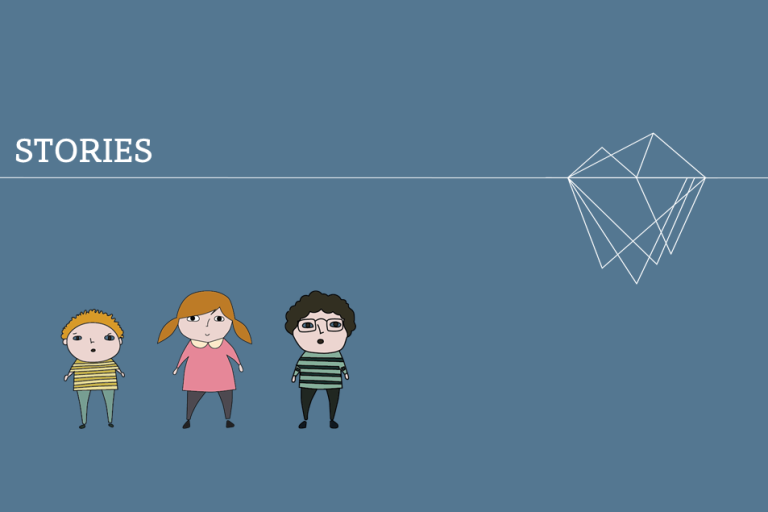Breaking down gender stereotypes
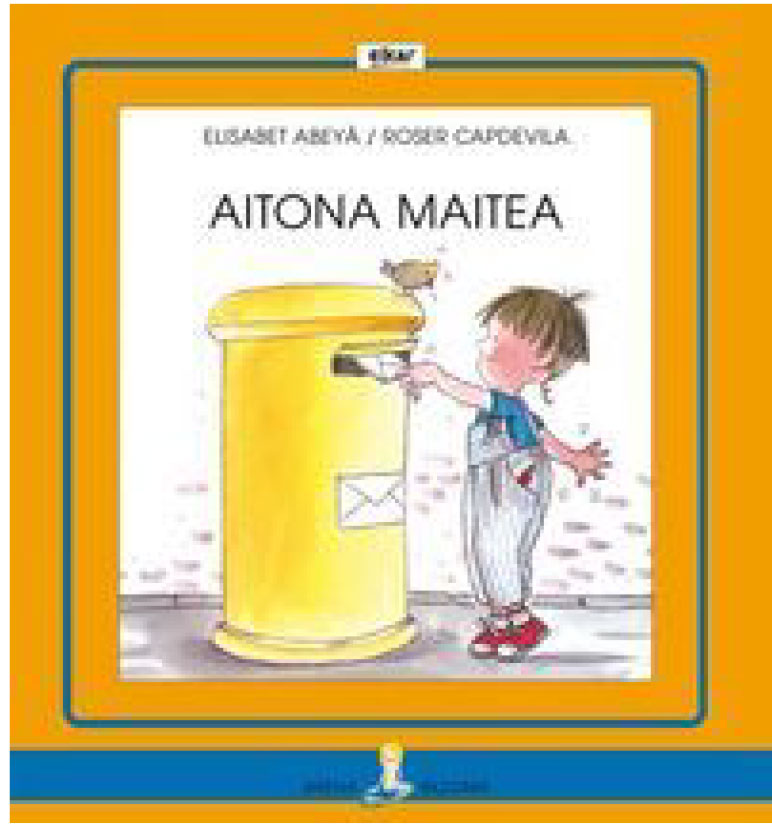
Title: Aitona maitea [Dear Granddad].
Author: Elisabet Abeyá.
Year: 2000
Place: Donostia-San Sebastián.
Published by: ELKARLANEAN, S.L.
Language: Basque.
Abstract: Joe has learned many things in his short life: he knows how to swim, how to ride a bike, wash himself, skip, do the washing up, tidy his room, read and even write. He has learned to do everything and tells his beloved granddad about it in a letter.
Gender equality indicators: breaking down gender stereotypes; freedom to decide.
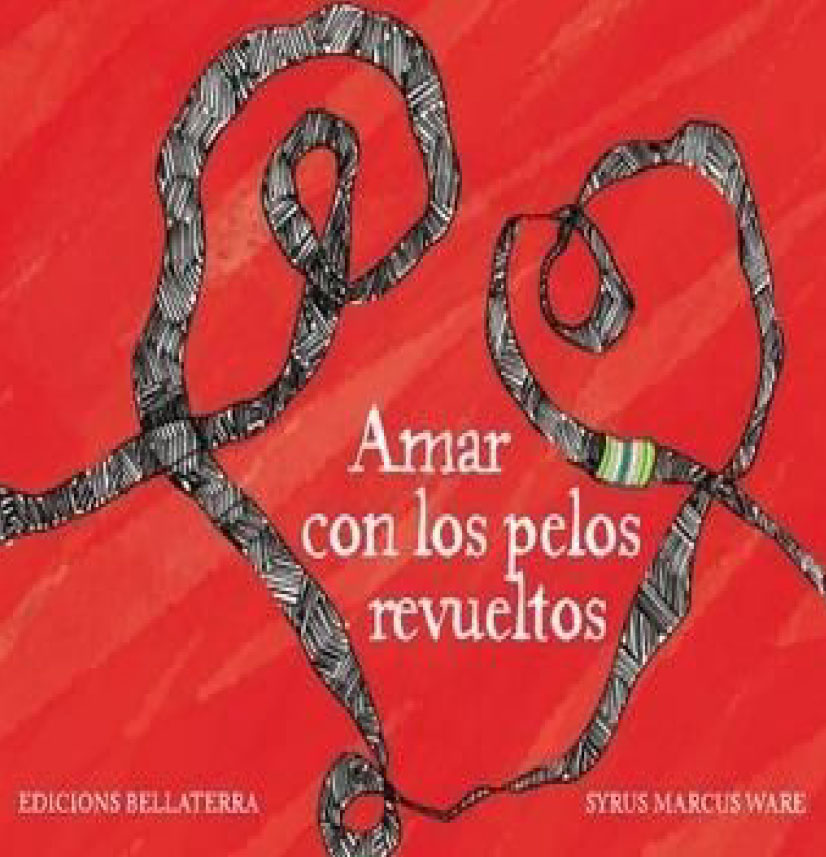
Title: Amar con los pelos revueltos [Love is in the hair].
Author: Syrus Marcus Ware.
Year: 2015
Place: Barcelona.
Published by: Edicions Bellaterra.
Language: Spanish.
Synopsis: Carter is up in the middle of the night because her baby sister is about to be born. While her parents are at the hospital, Carter is looked after by her Uncle Marcus. Marcus tells her about the beautiful things in his dreadlocks so she can relax and go back to sleep.
Gender equality indicators: breaking down gender stereotypes; care-related values; diversity of family models.
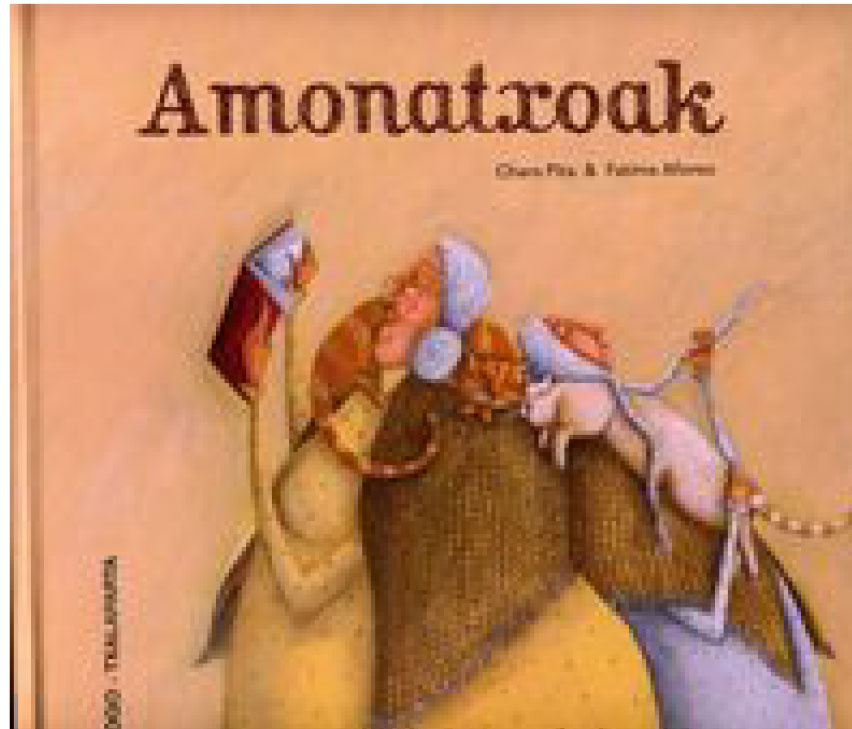
Title: Amonatxoak [Little old ladies].
Authors: Charo Pita; Fatima Afonso.
Year: 2010
Place: Tafalla.
Published by: Txalaparta.
Language: Basque.
Synopsis: Antea and Filipa are two old ladies who live together. Every day they drink soup made from water, but one day, Antea finds a bean in the kitchen. From the bean sprouts a giant plant that grows and grows right up to the sky. They follow it and find a mill that distributes food. The two old ladies help each other in this new adventure.
Gender equality indicators: breaking down gender stereotypes; care-related values; freedom to decide.
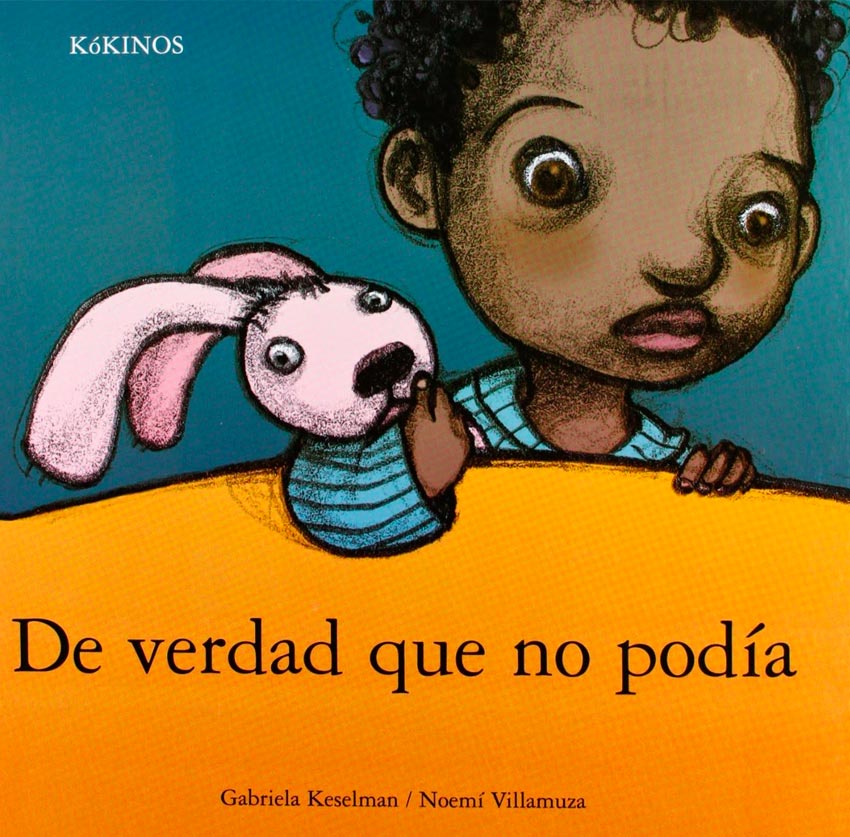
Title: De verdad que no podía [Marc just couldn’t sleep].
Authors: Gabriela Keselman; Noemí Villamuza.
Year: 2003
Place: Madrid.
Published by: Kókinos.
Language: Spanish.
Synopsis: Little Marc can’t get to sleep. He wants to, but just can’t. He is scared. His mum thinks of different ways to help him overcome his fears, but nothing seems to work…
Gender equality indicators: breaking down gender stereotypes; diversity of family models.
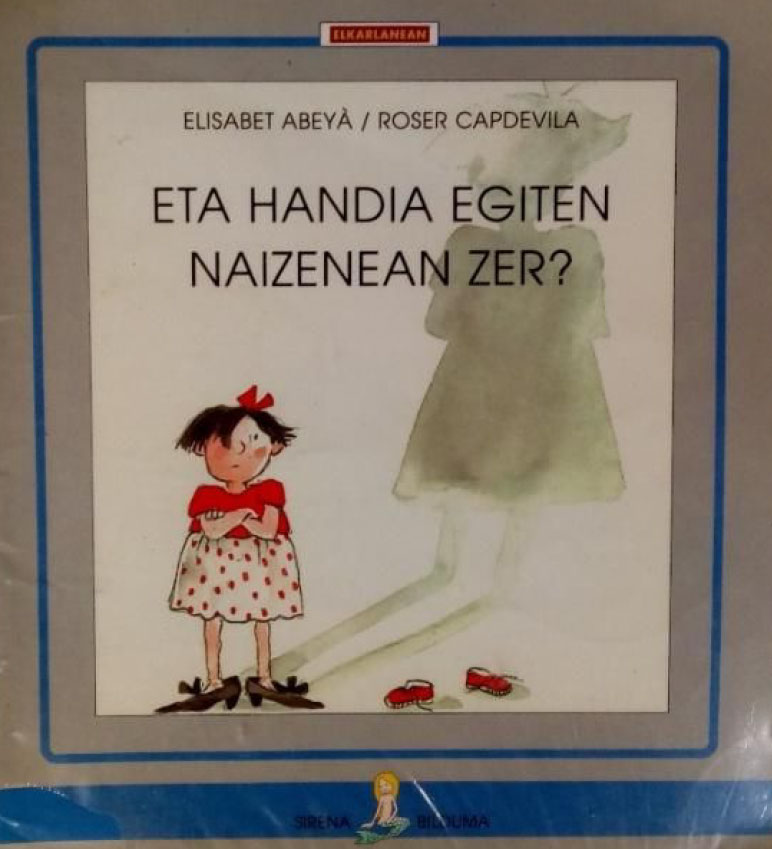
Title: Eta handia egiten naizenean zer? [What will I be when I grow up?].
Author: Elisabet Abeyá.
Year: 2000
Place: Donostia-San Sebastián.
Published by: ELKARLANEAN, S.L.
Language: Basque.
Synopsis: Aloña doesn’t know what she wants to be when she grows up. First she thinks about being a sailor; then she goes to get her hair cut and decides she wants to be a hairdresser. Next, she takes a taxi with her mum and says she wants to be a taxi driver; and so on throughout the day. In the evening, Aloña goes to a play. The main character is a witch and when Aloña says she wants to be a witch when she grows up, the witch tells her not to worry, she can be whatever she likes. Ever since then, Aloña doesn’t worry any more about what she’ll be when she grows up. She can play at being what she wants – there’ll be time enough to decide later.
Gender equality indicators: breaking down gender stereotypes; freedom to decide.
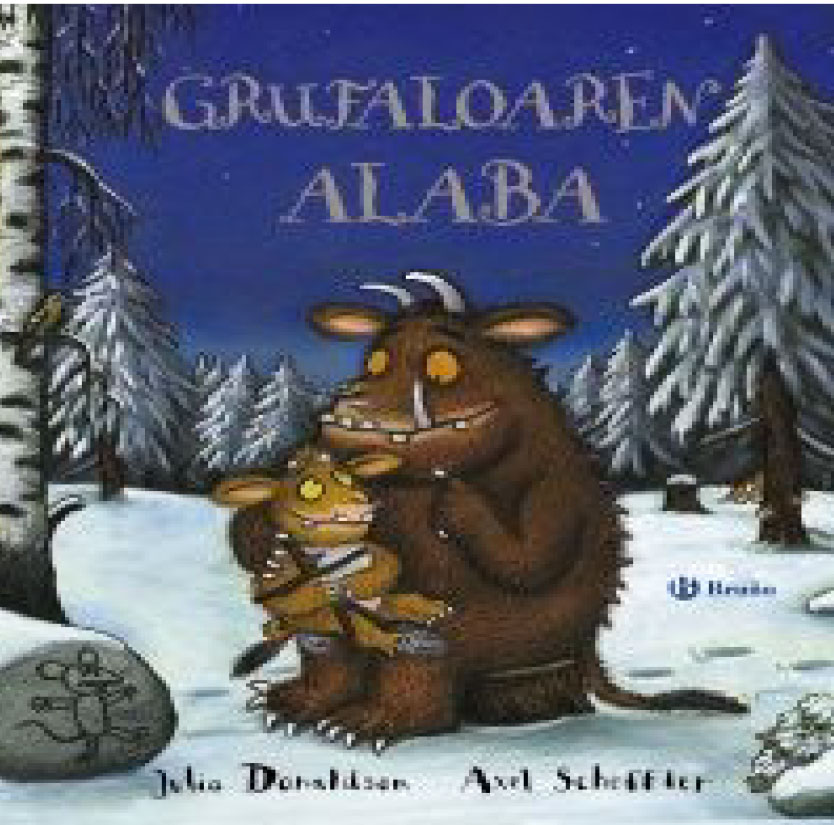
Title: Grufaloaren alaba [The Gruffalo’s child].
Authors: Julia Donaldson; Axel Scheffler.
Year: 2017 (first published in 2004).
Place: Madrid.
Published by: Bruño.
Language: Basque.
Synopsis: The Gruffalo lives with his daughter in a cave next to a deep dark wood. He tells her never to venture into the wood unless she wants to get trapped by the Big Bad Mouse. One cold night when the snow is falling thickly, the Gruffalo’s child can’t sleep and ventures out into the wood. She’s not scared, after all, the Big Bad Mouse doesn’t really exist … does he?
Gender equality indicators: breaking down gender stereotypes; diversity of family models.
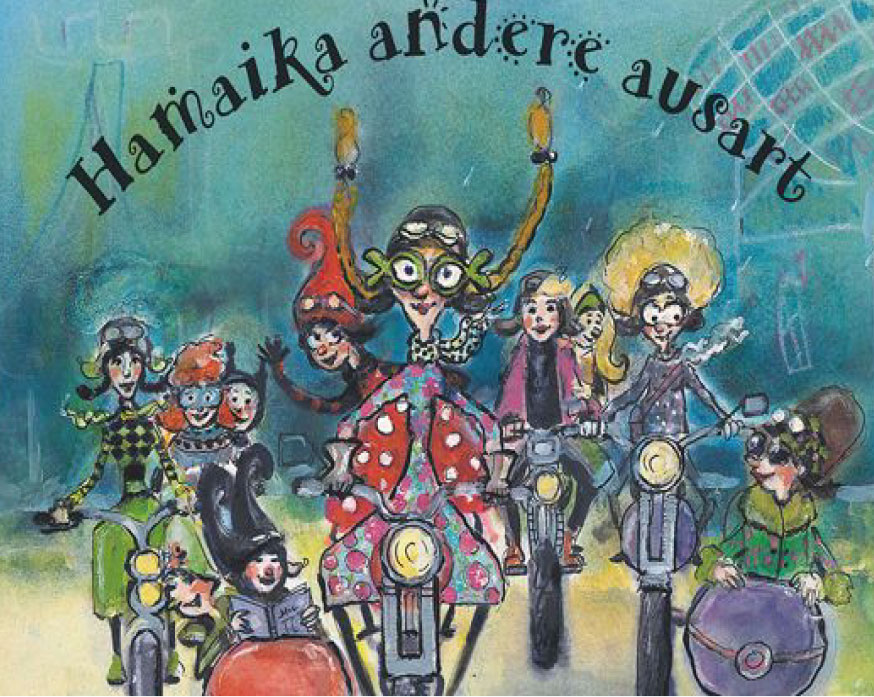
Title: Hamaika andere ausart [11 daring ladies].
Author: Oli Helle Thomassen.
Year: 2001
Place: Pontevedra.
Published by: Kalandraka.
Language: Basque.
Synopsis: The book recounts the travels of eleven daring women who journey to Al Ahmar, the desert, Moscow, Australia, etc. They are hardened adventurers, but at each stop in their journey, one stays behind.
Gender equality indicators: breaking down gender stereotypes; freedom to decide.
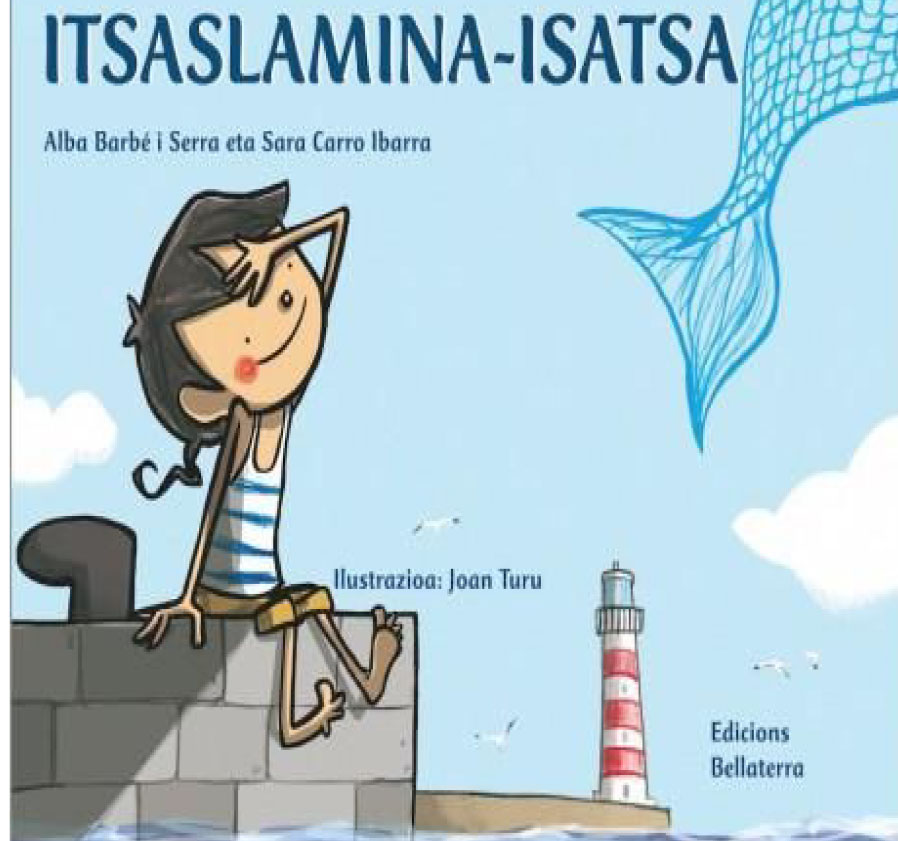
Title: Itsaslamina-isatsa [Mermaid’s tail].
Authors: Albar Barbé I Serra; Sara Carro Ibarra.
Año: 2016
Place: Barcelona.
Published by: Edicions Bellaterra.
Language: Basque.
Synopsis: Kai wears a mermaid’s tail outfit to a fancy dress party. Everyone laughs at him and Kai runs off, thinking he must have done something wrong. The next morning, he wakes up surrounded by mermaids and realises he has to make a decision. One thing or the other. Black or white. Fish or meat. Boy or girl. Human or merperson. As if there were only two alternatives! Can’t someone decide simply not to make a decision?
Gender equality indicators: breaking down gender stereotypes; freedom to decide.
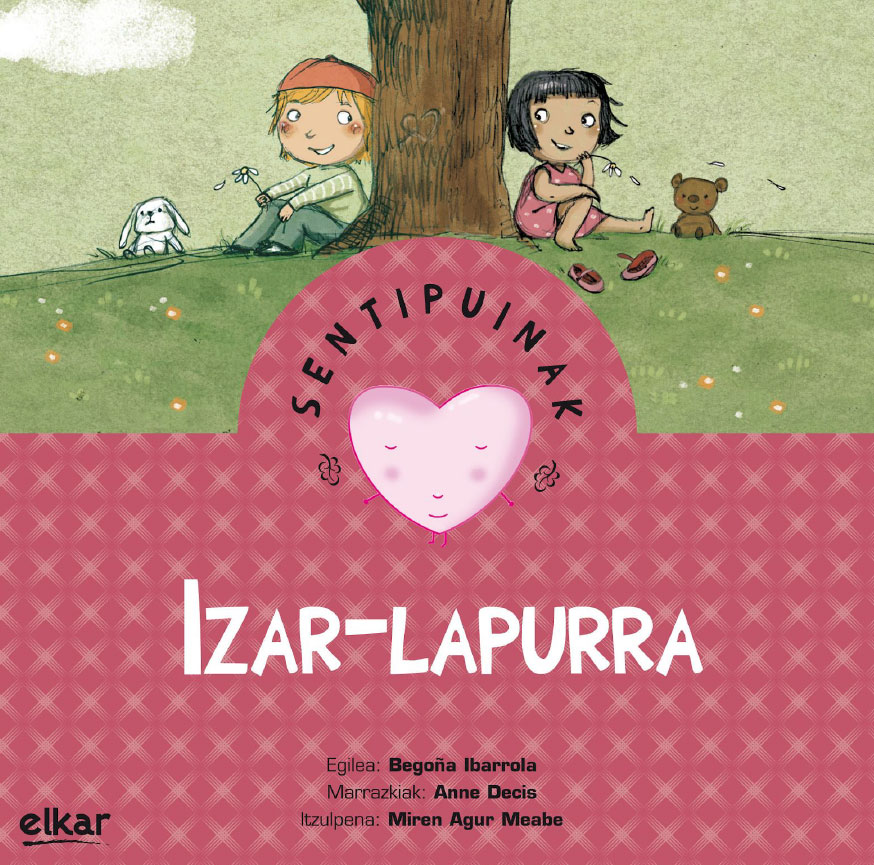
Title: Izar-lapurra [The star thief].
Author: Begoña Ibarriola.
Year: 2014
Place: Donostia-San Sebastián.
Published by: Elkar.
Language: Basque.
Synopsis: Katixa was Eneko’s best friend in the world and he was always trying to show her how much he loved her. One day, Katixa asked Eneko what he would be prepared to do for her, and Eneko came up with the idea of giving her the moon as a present. That night he climbed up to the sky to talk to the Moon. But the Moon wasn’t very keen on the idea, and Eneko was upset. Katixa then asked Eneko to give her a star every week to show her how much he loved her. The weeks went by, and the sky gardener caught Eneko stealing the stars from the sky. The sky gardener told him he had the wrong attitude, and that the brightest stars, the ones that would truly make Katixa happy, were inside himself.
Gender equality indicators: breaking down gender stereotypes; romantic relationships.
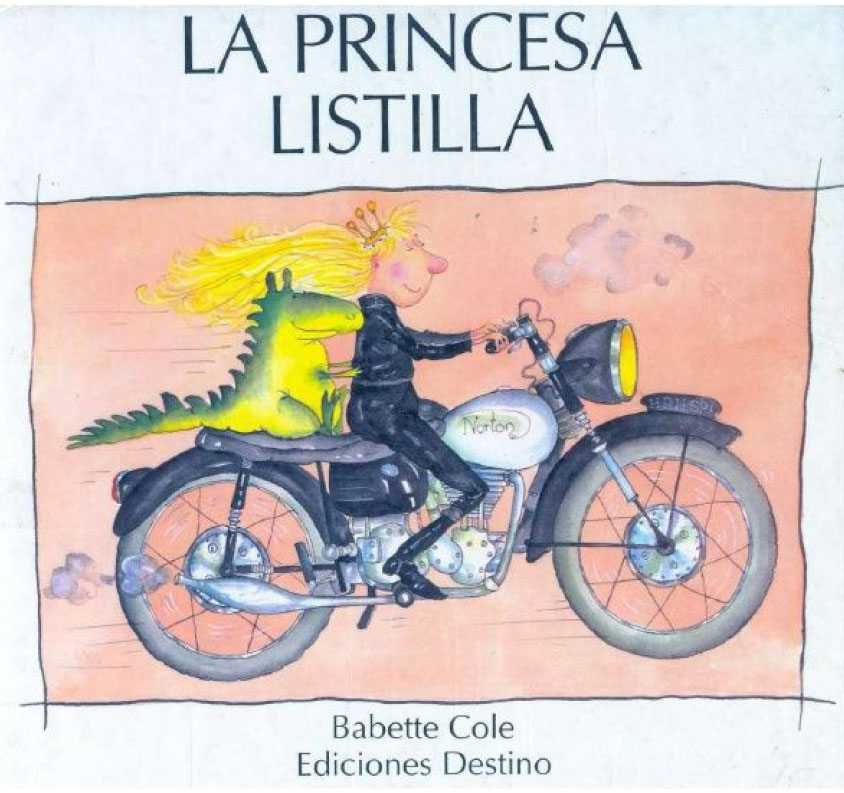
Title: La princesa listilla [Princess smartypants].
Author: Babette Cole.
Year: 1996
Place: Barcelona.
Published by: Ediciones Destino.
Language: Spanish.
Synopsis: Princess Smartypants doesn’t want to live the life her parents have planned out for her. She doesn’t want to marry a prince, she’d rather live in the castle with her pets. So, she sets all her suitors a challenge: she’ll only marry the one who can complete all the tasks she sets him. But it’s not easy. Only Prince Swashbuckle manages it … but the consequences are unexpected to say the least.
Gender equality indicators: breaking down gender stereotypes; freedom to decide; self-acceptance.
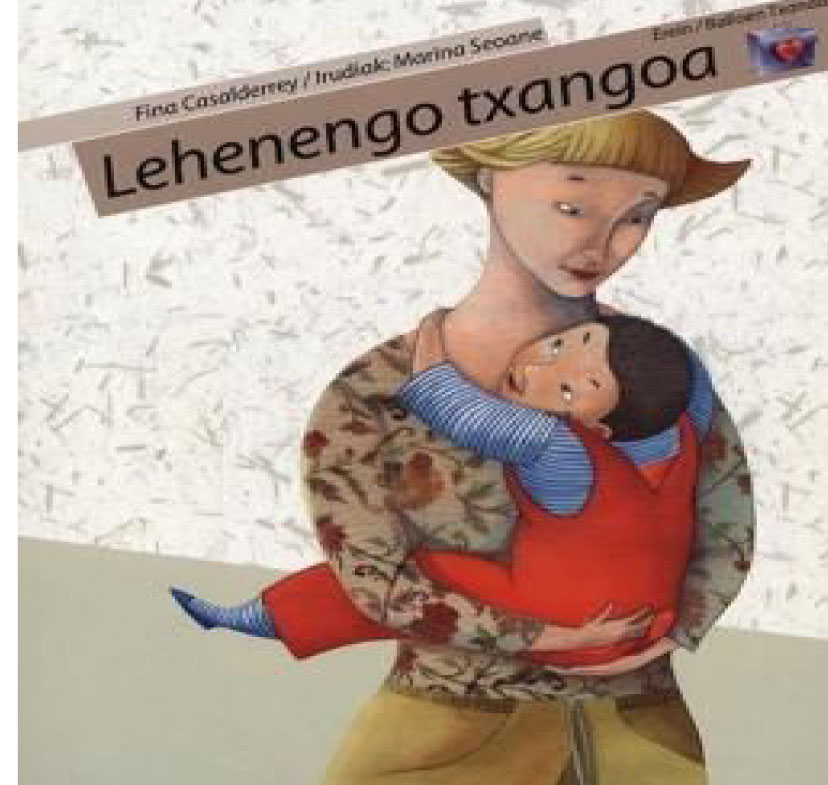
Title: Lehenengo txangoa [First ever outing].
Author: Fina Casalderrey.
Year: 2006
Place: Donostia-San Sebastián.
Published by: Erein.
Language: Basque.
Synopsis: Gurutze is a carpenter and Andrea is a violinist. They have a son called Alex, and today is his first school trip. On the bus, Alex has a number of adventures. Through this story, Alex and his friends show us that men and women are fully capable of doing the same things.
Gender equality indicators: breaking down stereotypes; doing household chores.
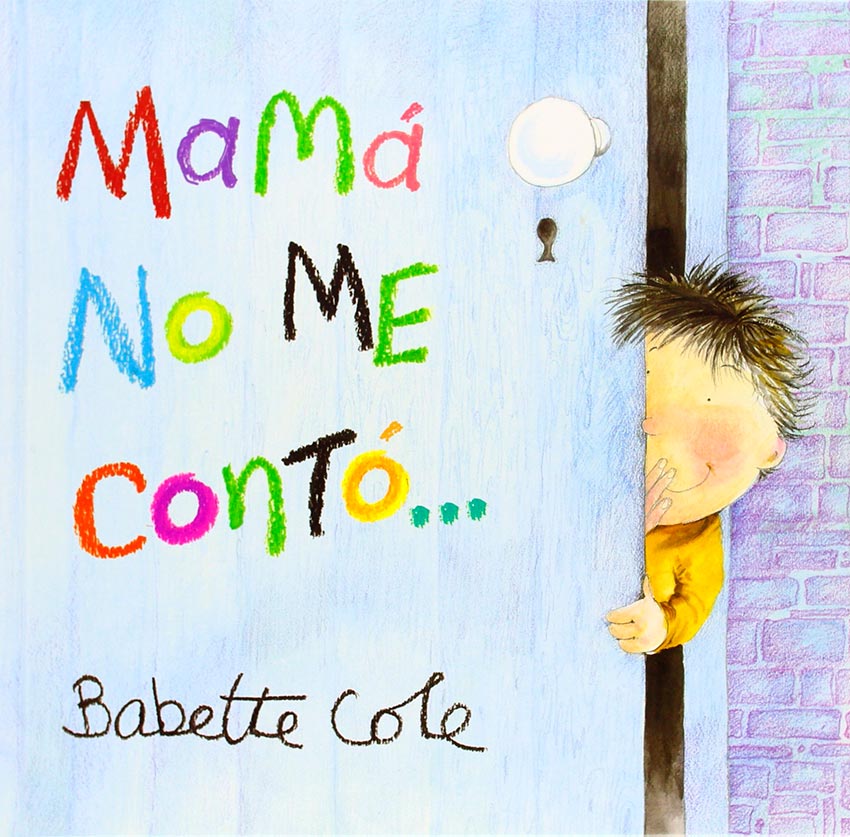
Title: Mamá no me contó… [Mummy Never Told Me…].
Author: Babette Cole.
Year: 2003
Place: Barcelona.
Published by: Ediciones Erres.
Language: Spanish.
Synopsis: This book is a wonderful opportunity for children to engage in an open-ended conversation with an adult, giving free reign to their innate curiosity. The book is full of questions that children love to ask their mothers, for example: Why do I have to go to school? Where do parents go when they go out at night? Why do adults sometime have hair growing out of their ears but not on top of their heads? There are also nods towards gender freedom.
Gender equality indicators: breaking down gender stereotypes; freedom to decide.
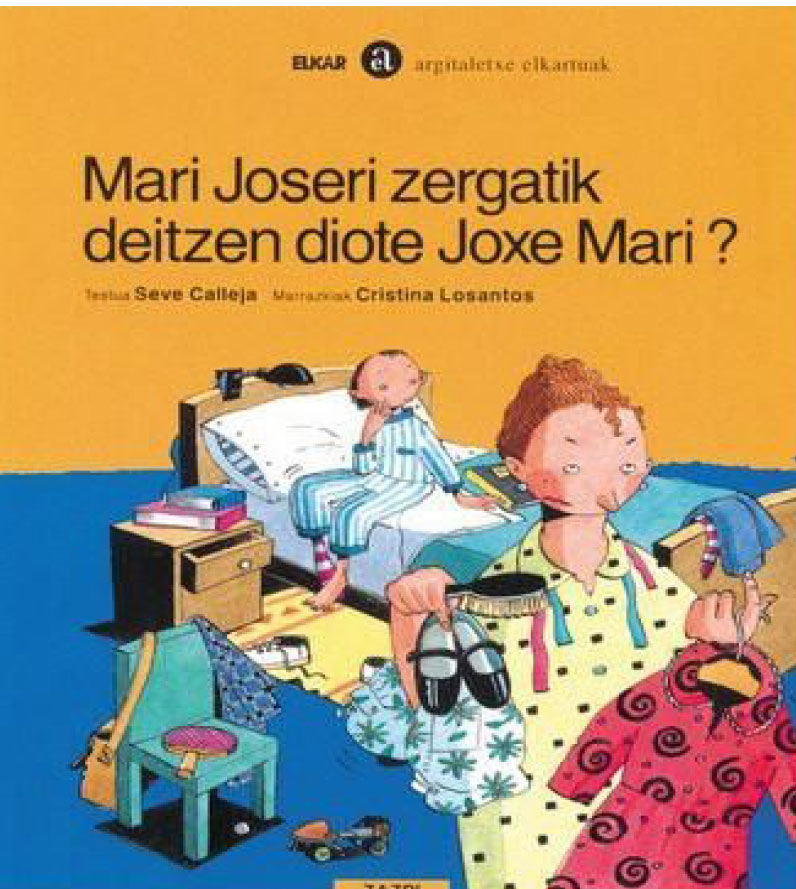
Title: Mari Joseri zergatik deitzen diote Joxe Mari? [Why do they call Mari Jose Joxe Mari?].
Author: Seve Calleja.
Year: 2010
Place: Donostia-San Sebastián.
Published by: Elkar.
Language: Basque.
Synopsis: Mari Jose is eight years old. She loves playing football. She doesn’t wear earrings and is happy and carefree – she doesn’t give a hoot what people say.
Gender equality indicators: breaking down gender stereotypes; freedom to decide; self-acceptance.
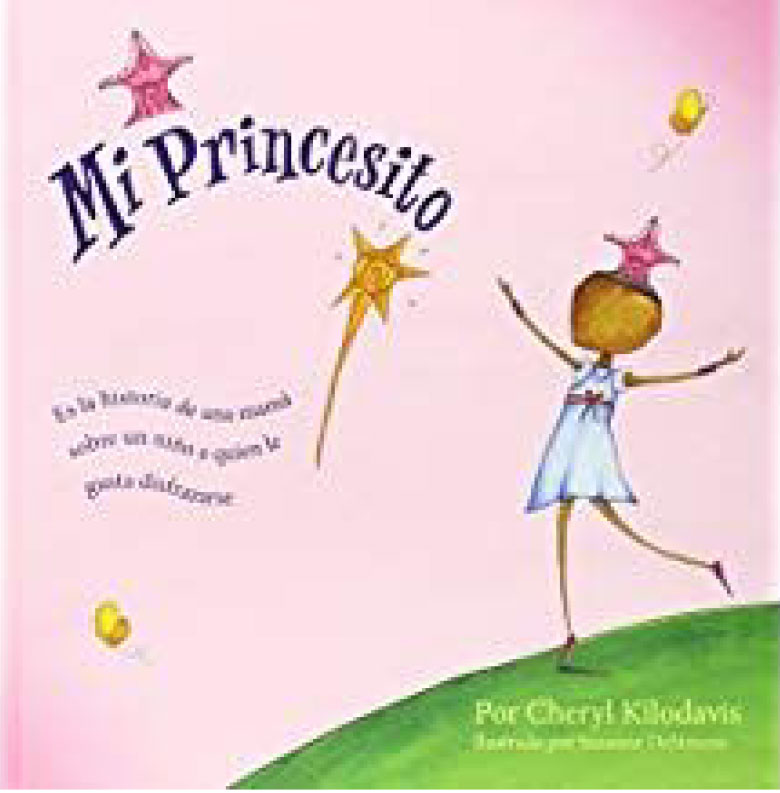
Title: Mi princesito [My princess boy].
Author: Cheryl Kilodavis.
Year: 2015
Place: Barcelona.
Published by: Edicions Bellaterra.
Language: Spanish.
Synopsis: A mother tells about the daily life of her young son – the things he likes, what he likes to do with his friends and family. It is an enriching tale of unconditional family love, of how happy it makes you when people love you just as you are.
Gender equality indicators: breaking down gender stereotypes; freedom to decide; self-acceptance.
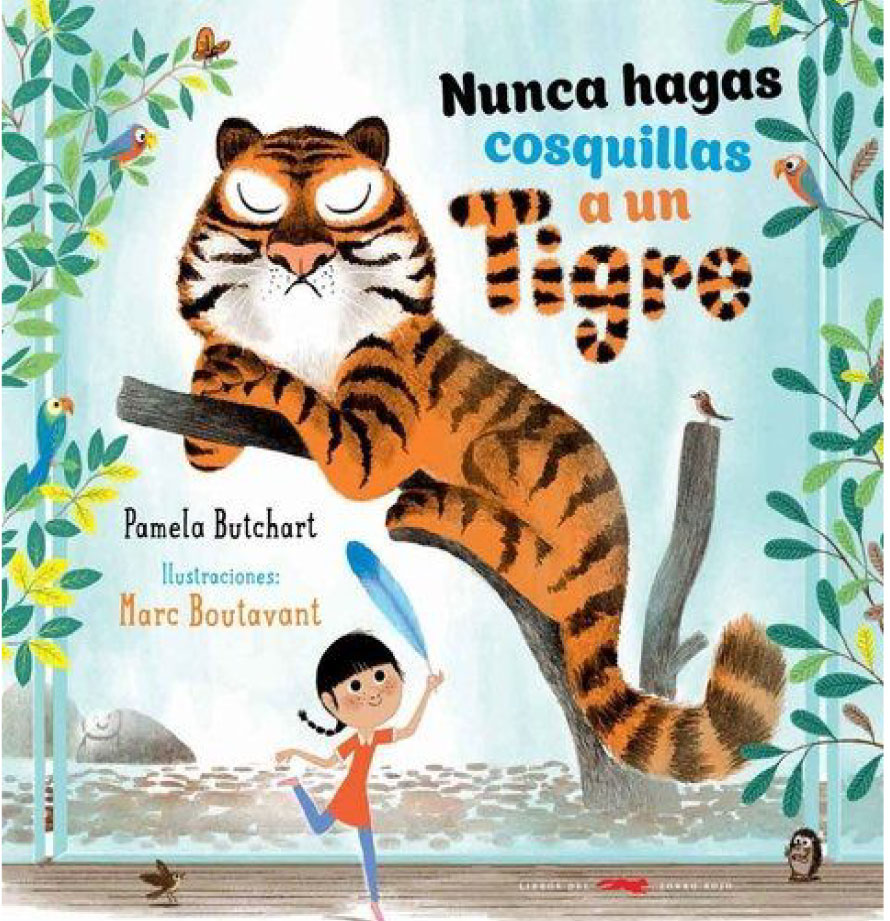
Title: Nunca hagas cosquillas a un tigre [Never tickle a tiger].
Authors: Pamela Butchart; Marc Boutavant.
Year: 2016
Place: Barcelona.
Published by: Libros del zorro rojo.
Language: Spanish.
Synopsis: The book recounts the adventures of the main character, Izzie. Izzie is a very lively girl who loves to dance, jump, run and turn somersaults. She also loves to experiment. She is curious about everything and likes to do things to satisfy that curiosity, even when it makes those around her nervous. She even tickles the great big tiger at the zoo!
Gender equality indicators: breaking down gender stereotypes; self-acceptance.
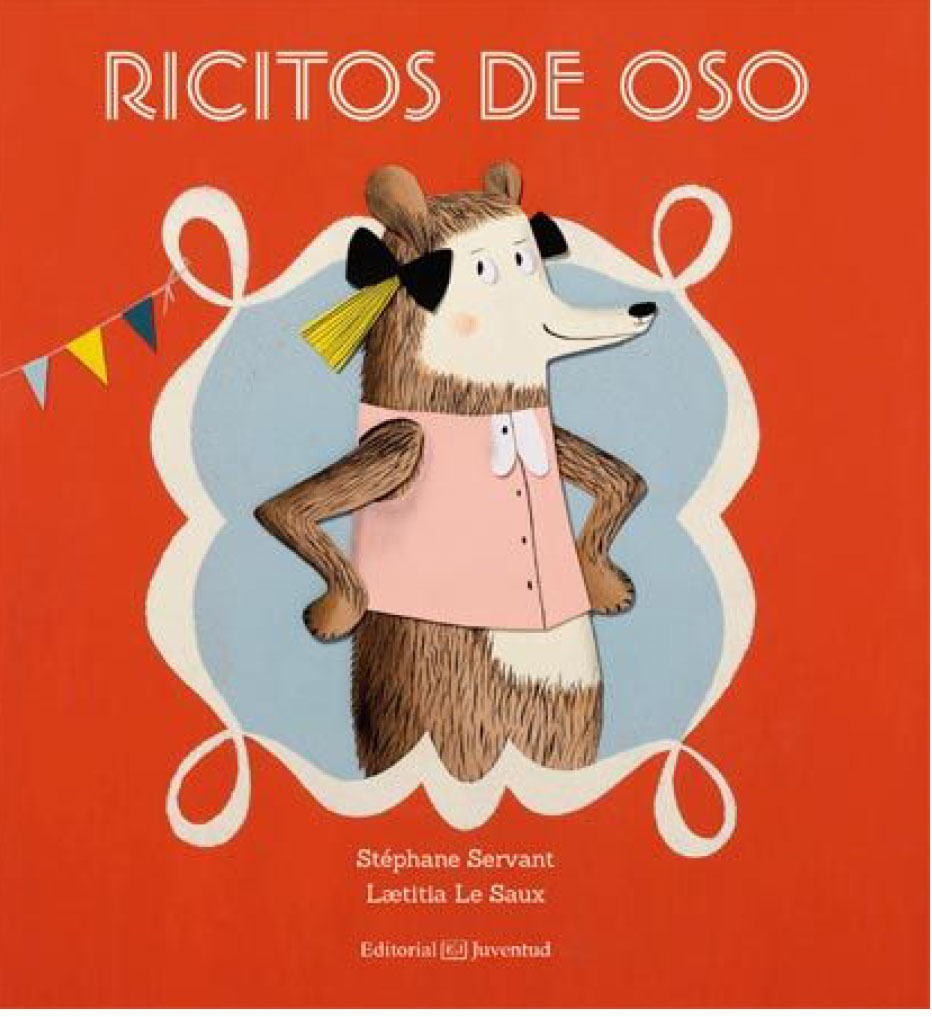
Title: Ricitos de oso [Bearylocks].
Authors: Stéphane Servant; Laetitia Le Saux.
Year: 2014
Place: Barcelona.
Published by: Editorial Juventud.
Language: Spanish.
Synopsis: Baby Bear wants to dress up as Goldilocks for the big festival, with a yellow ponytail and a pink skirt. Daddy Bear does not approve of his outfit. But Baby bear isn’t about to give up. He and Mummy Bear work together to convince Daddy Bear.
Gender equality indicators breaking down gender stereotypes; freedom to decide; self-acceptance.
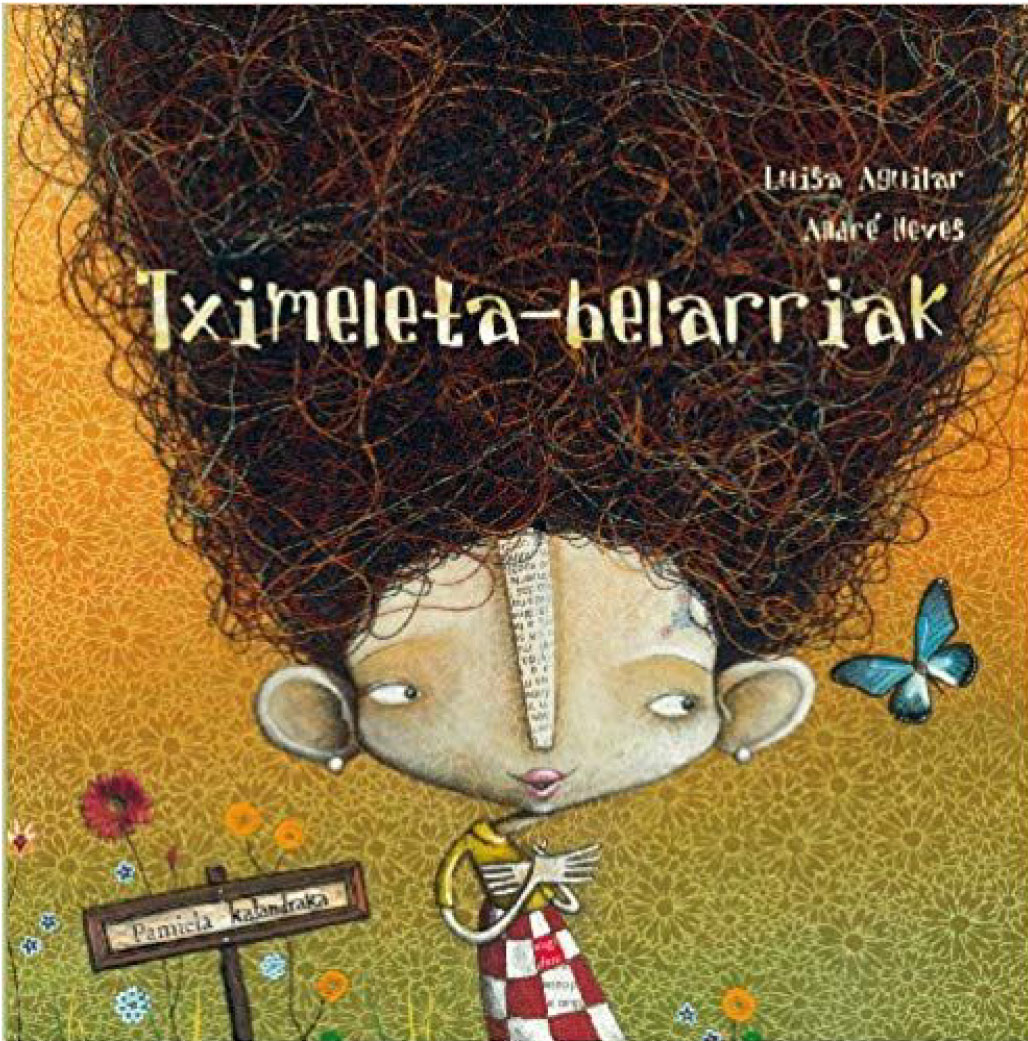
Title: Tximeleta-belarriak [Butterfly ears].
Authors: Luisa Aguilar; André Neves.
Year: 2009
Place: Eujoa (Asturias).
Published by: Pamiela / Kalandraka.
Language: Basque.
Synopsis: Mara is teased by her friends, who call her big ears, fuzzy head and holey socks, etc. But Mara doesn’t let herself be cowed. She has the ability to find a positive take on what other people see as a reason to tease her. With her own sense of worth as her ally, she turns adversity into new opportunities…
Gender equality indicators: breaking down stereotypes; respecting diversity; self-acceptance.
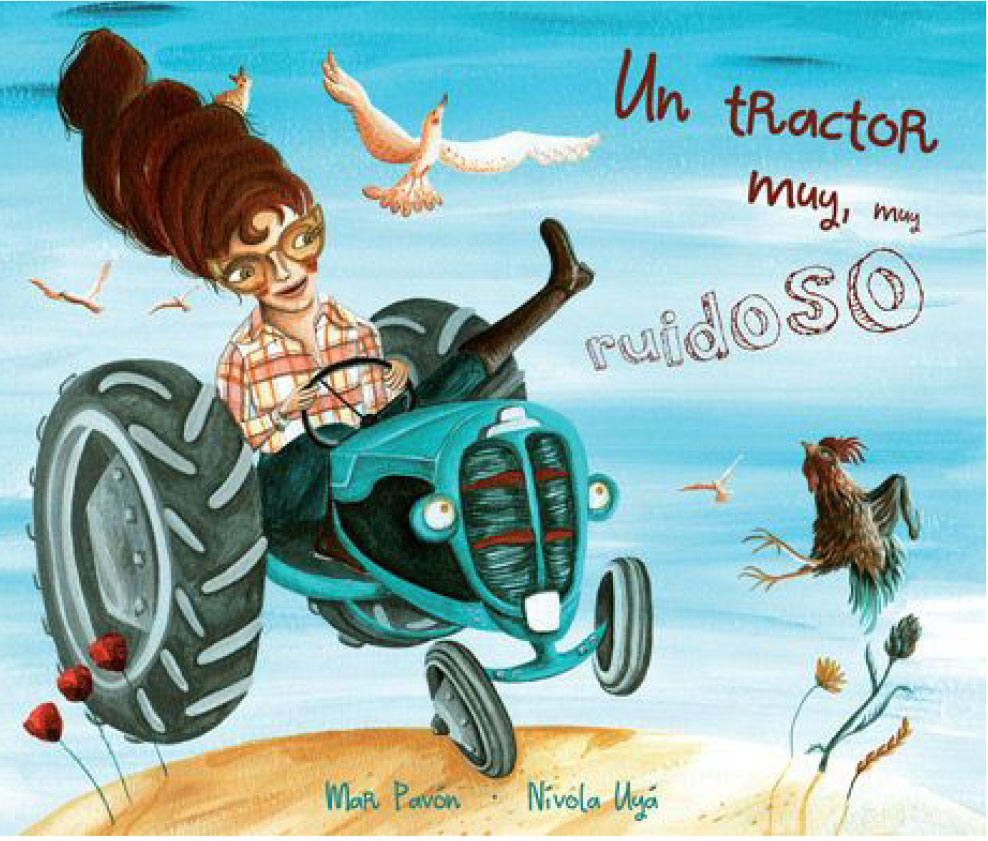
Title: Un tractor muy, muy ruidoso [A very, very noisy tractor].
Authors: Mar Pavón; Nívola Uyá.
Year: 2013
Place: Madrid.
Published by: Cuento de Luz.
Language: Spanish.
Synopsis: The book tells the tale of a farmer driving home on her tractor. The people she meets along the way are surprised to see a woman driving a tractor. When she arrives home, her daughter and husband are waiting for her, with dinner on the table. Her daughter tells her that she wants to be a farmer too when she grows up.
Gender equality indicators: breaking down gender stereotypes; care-related values; doing household chores.
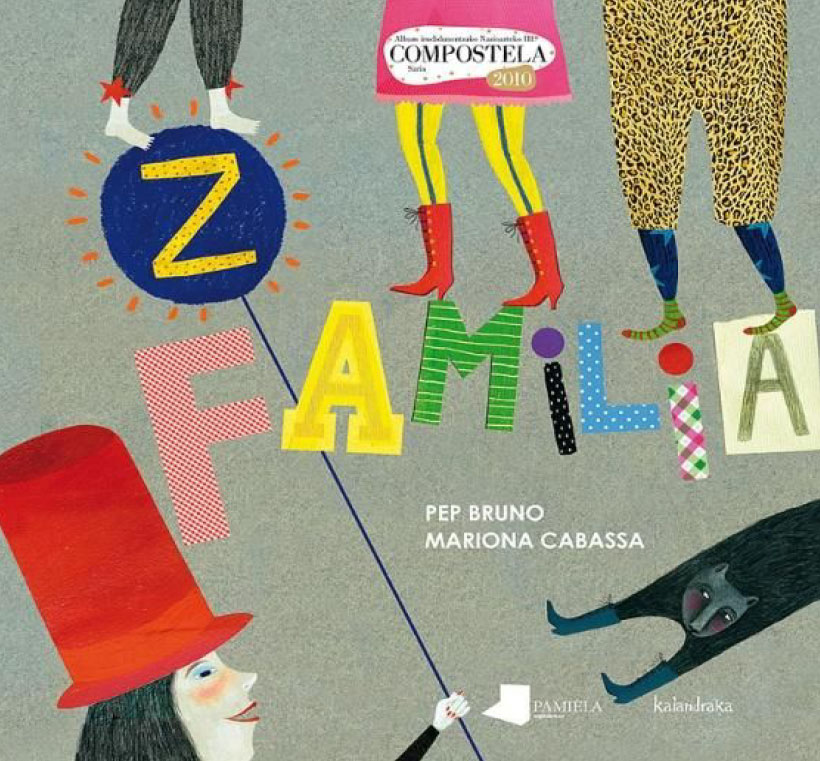
Title: La familia C [The C family].
Author: Pep Bruno.
Year: 2010
Place: Vigo.
Published by: Kalandraka.
Language: Spanish.
Synopsis: The C family is a family which loves the circus. With the power of imagination, they change everyday activities into exciting adventures, effortlessly blending fiction and reality.
Gender equality indicators: breaking down gender stereotypes; doing household chores.
- Categories:
- STORIES

